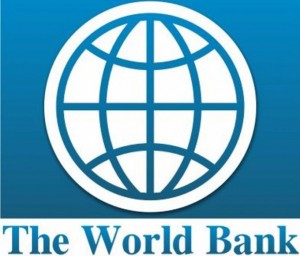World Bank projects economic growth in sub-Sahara Africa at a low 3.7% in 2015
 Economic growth in sub-Sahara Africa is expected to slow reaching the lowest growth rate since 2009, according to new projections by the World Bank.
Economic growth in sub-Sahara Africa is expected to slow reaching the lowest growth rate since 2009, according to new projections by the World Bank.
After rising 4.6 per cent in 2014, economic expansion in sub-Saharan Africa is set to decelerate markedly in 2015, reflecting the combined effects of difficult global conditions and domestic challenges, the Bank says.
The Bank projects that growth will slow in 2015 to 3.7 per cent from 4.6 per cent in 2014.
In a press release, the Bank says the latest figures are outlined in its new twice-yearly analysis of economic trends and the latest data on Africa –’Africa’s Pulse’.
According to the report the 2015 forecast remains below the robust 6.5 per cent growth in GDP which the region sustained in 2003 to 2008, and drags below the 4.5 per cent growth following the global financial crisis in 2009 to 2014.
“Overall, growth in the region is projected to pick up to 4.4 per cent in 2016, and further strengthen to 4.8 per cent in 2017,” the report stated.
It indicates that the region’s commodity exporters, especially, oil producers such as Angola, Equatorial Guinea, Nigeria and the Republic of Congo, as well as producers of minerals and metals such as Botswana and Mauritania are seeing setbacks to growth.
The report cites South Africa and Zambia as countries whose growth would be compounded by domestic factors, notably electricity supply bottlenecks.
In Burundi and South Sudan, the report notes that political and social tensions are affecting economic activities.
However, the report says Ivory Coast, Ethiopia, Mozambique, Rwanda and Tanzania “are bucking the weakening regional trend and continuing to post robust growth.”
According to the report, the weakening of fiscal balances is due to the heavy dependence of fiscal revenues on commodity exports, adding that the fiscal positions of oil exporting countries like Angola, Nigeria and the Republic of Congo were particularly affected.
The report among other things indicates that capital flows to the region slowed in 2015, and bond issuance decelerated after reaching record levels in 2013 and 2014.
On poverty reduction, the report citing latest estimates from the World Bank said poverty in Africa, based an international poverty line of $1.90 (in 2011 purchasing power parity US dollars), declined from 56 per cent in 1990 to 43 per cent in 2012, and “much of this decline was recorded in the past 15 years.”
By Emmanuel K. Dogbevi
